Biotin Thiamine Responsive Basal Ganglia Disease
Biotin thiamine responsive basal ganglia disease. Follow the links to read common uses side effects dosage. Her older sister had the disease but she died from a viral infection before she was diagnosed. Biotin-thiamin responsiv basal ganglie sykdom er en autosomal recessive mutasjon i SLC19A3 genet neurometabolsk tilstand karakterisert ved subakutt encefalopati anfall dysartri og dystoni etter feber episode.
It usually presents with encephalopathy and dystonia. BBGD was first de-scribed by Ozand et al. The disease is characterized by subacute encephalopathy with confusion dysphagia dysarthria and seizures.
607483 is an autosomal recessive inherited neurometabolic disorder. If not treated can progress to quadriparesis and death. Biotin-thiamine-responsive basal ganglia disease BTBGD is characterized by recurrent subacute encephalopathy manifest as confusion seizures ataxia dystonia supranuclear facial palsy external.
It is characterized by sub acute encephalopathy with confusion seizure dysarthria and dystonia following a history of febrile illness. We report a novel mutation identified in the homozygous state in a patient with typical brain MRI changes. The classic presentation of BTBGD occurs in childhood age 3-10 years and is characterized by recurrent subacute encephalopathy manifest as confusion seizures ataxia dystonia supranuclear facial palsy external ophthalmoplegia.
My younger daughter is responding to the treatment of high dosage of biotin and thiamine and she looks great. The severity of the condition and the associated signs and symptoms vary from person to person even within the same family. It should be suspected in pediatric patients with unexplained encephalopathy whose brain MR imaging shows bilateral and symmetric lesions in the caudate heads and putamen with or without involvement of mesencephalon thalami and cortical-subcortical regions as the therapeutic trial of biotin and thiamine.
31 linhas Biotin-thiamine-responsive basal ganglia disease is a rare condition that affects the brain and other parts of the nervous system. Biotin-thiamine-responsive basal ganglia disease BTBGD may present in childhood early infancy or adulthood. Biotin-responsive basal ganglia disease BBGD also known as thiamine metabolism dysfunction syndrome-2 THMD2 MIM.
Biotin-responsive basal ganglia disease is an autosomal recessive neurometabolic disorder presenting with subacute encephalopathy that can cause death if left untreated. BACKGROUND AND PURPOSE.
We report a novel mutation identified in the homozygous state in a patient with typical brain MRI changes.
Biotin-responsive basal ganglia disease BBGD also known as thiamine metabolism dysfunction syndrome-2 THMD2 MIM. Below is a list of common natural remedies used to treat or reduce the symptoms of Biotin-Thiamine-Responsive-Basal-Ganglia-Disease. We report a novel mutation identified in the homozygous state in a patient with typical brain MRI changes. In 10 patients of whom 8 were Saudi 1 was Syrian and 1 was Yemeni. The purpose of this study is to assess the neuroimaging and clinical features of the disease before and after treatment with biotin. As its name suggests the condition may improve if the vitamins biotin and thiamine are given as treatment. Biotinthiamine responsive basal ganglia disease is an inborn error of metabolism caused by mutations in SLC19A3 encoding a transporter of thiamine across the plasma membrane. Her older sister had the disease but she died from a viral infection before she was diagnosed. It is characterized by sub acute encephalopathy with confusion seizure dysarthria and dystonia following a history of febrile illness.
31 linhas Biotin-thiamine-responsive basal ganglia disease is a rare condition that affects the brain and other parts of the nervous system. It should be suspected in pediatric patients with unexplained encephalopathy whose brain MR imaging shows bilateral and symmetric lesions in the caudate heads and putamen with or without involvement of mesencephalon thalami and cortical-subcortical regions as the therapeutic trial of biotin and thiamine. Biotin-thiamine-responsive basal ganglia disease is a disorder that affects the nervous system including a group of structures in the brain called the basal ganglia which help control movement. 607483 is an autosomal recessive inherited neurometabolic disorder. The disease is characterized by subacute encephalopathy with confusion dysphagia dysarthria and seizures. 607483 is an autosomal recessive inherited neurometabolic disorder. BACKGROUND AND PURPOSE.

















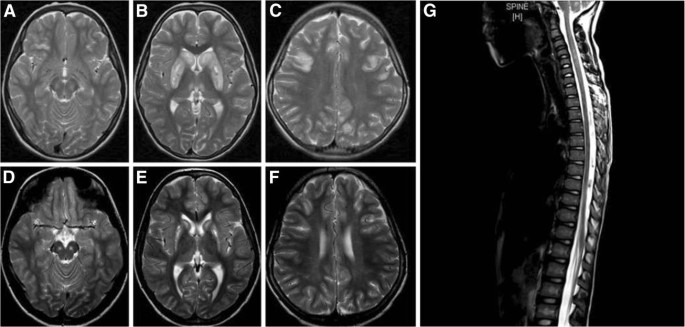
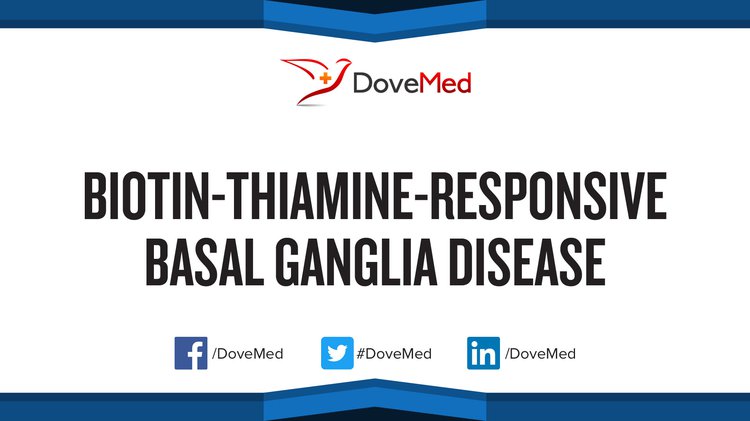




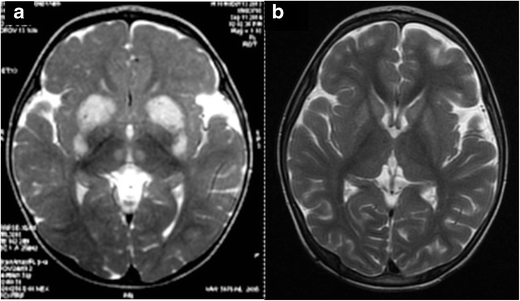










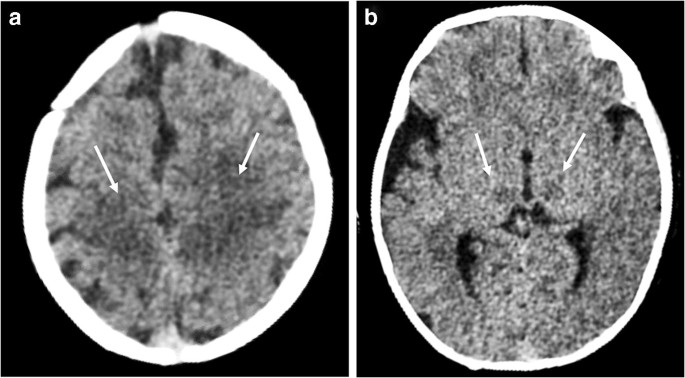
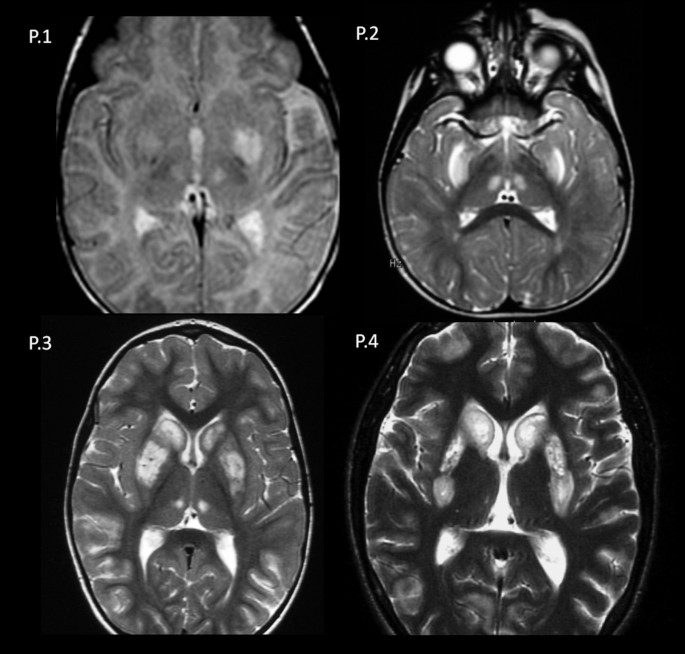
Post a Comment for "Biotin Thiamine Responsive Basal Ganglia Disease"